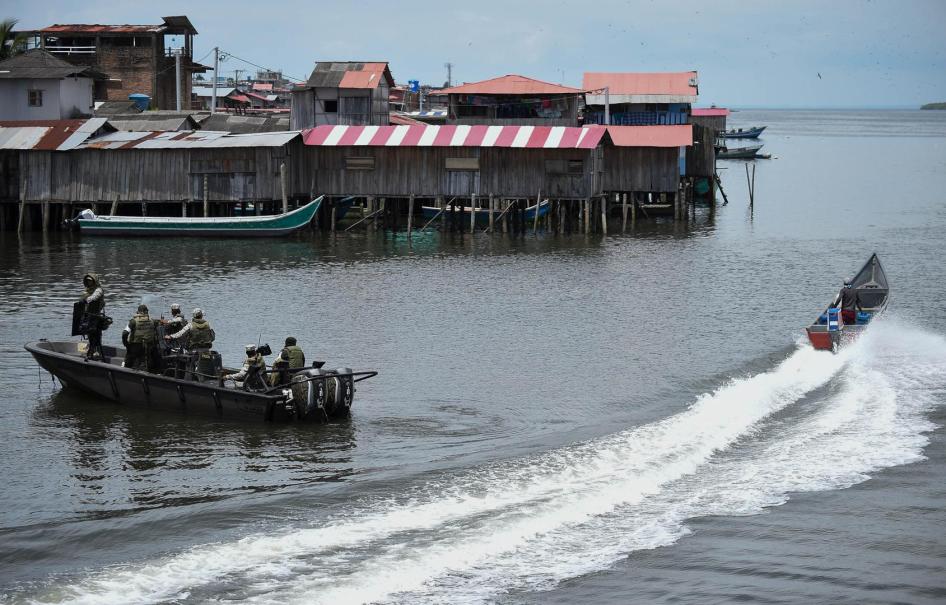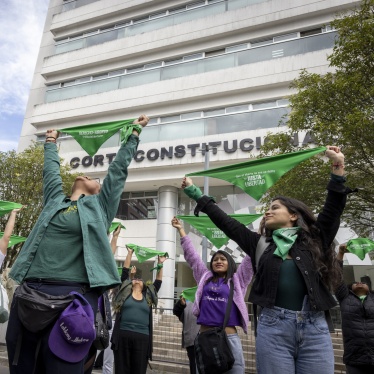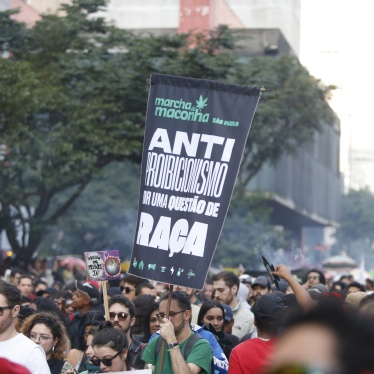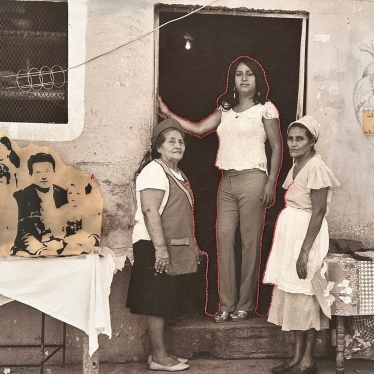A group of men showed up at Natalia’s house in rural Tumaco one day in July 2017.
The men forced Natalia and her husband out of their home. One of the men took Natalia to a hill, where he raped her. When he left her, she staggered back to her house. Hours later, her husband came home with bruises all over his body. (We have changed Natalia’s name for her protection.)
In a recent report, we documented the attacks by armed groups on residents of urban neighborhoods and rural hamlets in the Colombian southwestern municipality of Tumaco. Like Natalia, dozens of women and girls have suffered sexual abuse, including rape, committed by these groups in recent years. From January 2017 through the end of 2018, more than 70 people in Tumaco reported sexual abuses linked to armed conflict, according to the Victims’ Registry. This is by far the highest number of reported cases in any municipality in Colombia during those two years.
Like rapes, homicides skyrocketed last year in the urban neighborhoods of Tumaco. They reached their highest level in six years, despite the peace process with the Revolutionary Armed Forces of Colombia (FARC) guerrillas. But the groups operating in the city reportedly reached an agreement in December to halt their fighting for control of neighborhoods. Homicides dropped. Official figures show that 11 killings were reported in January, down from the 19 in November.
Yet in rural areas where there is no truce, residents and local authorities have told us that violence—including rape—continues.
Worryingly, the Attorney General’s Office has failed to ensure justice for these horrifying sexual crimes. Not a single person has been convicted for sexual crimes committed in Tumaco since 2017, the Attorney General’s Office told Human Rights Watch. Only four people have been charged.
These poor results are no surprise, given the structural shortcomings that limit authorities’ capacity to prosecute sexual violence. Only one prosecutor in Tumaco is assigned specifically to investigate and prosecute crimes of sexual violence. She is currently handling 742 cases.
The prosecutor oversees the Victims of Sexual Violence Center for Assistance and Comprehensive Investigation (Centros de Atención e Investigación Integral a las Víctimas de Delitos Sexuales, CAIVAS). CAIVAS is supposed to reduce barriers to comprehensive care by offering integrated psychological, social, legal, forensic, and medical support. After we discussed our report with the attorney general in December, his office increased the number of police investigators at CAIVAS from only one to six. Yet with a small team of investigators and administrative assistants, the CAIVAS office in Tumaco still cannot keep up with the caseload, much less offer comprehensive services. The office employs no physicians, psychologists, or social workers.
Many women in Tumaco do not report the crimes against them, which is not surprising considering that the government offers virtually no protection for those who do. Police sometimes refuse to go to neighborhoods and rural areas to protect victims when armed groups are present. Victims sometimes waive protection for fear that armed groups will accuse them of being informants or tell them they must pay a “fine” for calling the police.
Colombian law requires the government to provide temporary housing, transportation, and food to victims of sexual violence who request it. Yet in Tumaco, such assistance is rare.
Officials, as well as some residents, told us that a shelter for survivors of sexual violence could go a long way toward helping to protect victims. In December, I shared this recommendation with Vice President Marta Lucía Ramirez, who says she has started to gather funds to build one.
Any new shelter should allow women to flee with their families intact. Our research in other areas of Colombia revealed that women who are raped or threatened with rape by armed groups often do not want to flee without their families. Some shelters are underused because they cannot accommodate families.
In December, Colombian authorities killed “Guacho,” the best-known commander operating in Tumaco. But Tumaco residents need much more help to deal with the violence in their community. Residents in the city, especially survivors of sexual violence, should not be left without support.









